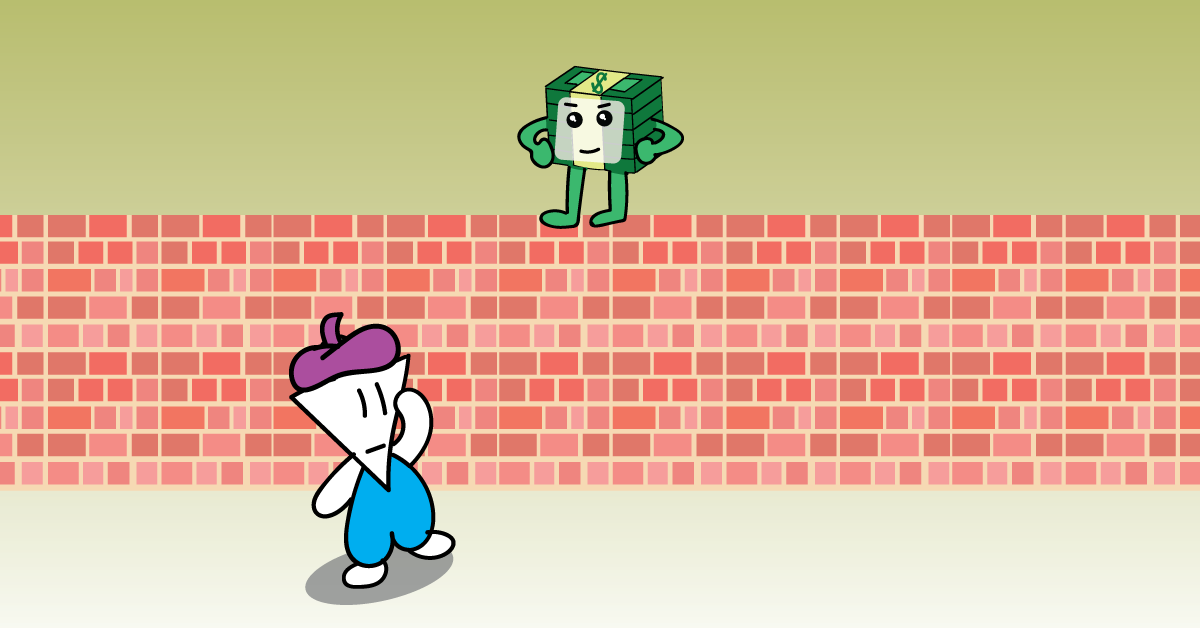The Fallacy of Passion
The imperative to “follow your passion” was once an empowering slogan, but is now a tired trope. In its heyday, it was empowering because the promise of spending a third of your life doing something you love couldn’t be ignored. The thought of converting your interests into a viable living was something that resonated with millions, and this passion-driven economy was viewed as a utopia to strive for.
But the downfall of this imperative came from the inability to actualize one word from the previous sentence:
A pursuit’s viability.
Ultimately, you can’t live off your love for something. It doesn’t matter how powerful your inner engine of expression is; without the fuel of money, you will stall out and be left on the side of the road. And like it or not, the only way for this fuel to be provided to you is to create something valuable enough to warrant that exchange.
This is where the “follow your passion” train hits a brick wall and breaks down into obsolescence. There’s simply too much emphasis on self-interest, and not enough on communal interest. When you tell someone to follow their passion, you are effectively telling them to do what they please because they only have this one life to live. And while this may make sense, it misses a crucial part of the picture: Not only do they have to follow their passion, but they also have to convince others that their passion is worth paying attention to. And the gap between the two is bridged by what I call Creative Resistance.
In the same way that art and business have a timeless tension, so does passion and validation. Passion originates from the small seed of individuality, whereas validation stems from the vast circle of belonging. These two things operate in different realms, yet they are housed within the same container of the human condition. As the Daoists would say, one only exists because of the other.
Creative Resistance is the force that attempts to connect these two things together. In short, it lives in the things you’d rather not do that are just as important as the things you want to do. And the ability to discern which is which at any time will determine just how viable your passion can be.
Let’s make this concrete through a personal example.
If you were to ask me if I’m following my passion, I’d say yes. Creating things for More To That brings me immense satisfaction, and the nature of the work allows me to follow whatever I’m curious about. Given that contemplation and reflection are things I’d do anyway, it’s amazing that I can make these regular aspects of my work life.
With that said, I don’t feel that way each day.
Writing is a famously difficult endeavor, and I’m not exempt from this. Part of this stems from the fact that I’m writing to publish, which means that what I’m creating will be read by others. This introduces all kinds of dynamics, where I have to think about how I want to frame and present my ideas, which makes an already difficult endeavor even more challenging. Writing is my way of figuring out what I think (i.e. my passion) but it’s also my way of connecting with others and getting my ideas out there (i.e. validation). Creative Resistance emerges when I want to write purely for myself, knowing that I also need to empathize with my reader to make their investment of attention worthwhile.
Now, if I were simply following my passion, I’d be happy saying “screw it” and just scribble my thoughts out as if I were writing in my journal. If what I love is to express myself through the written word, then all I require of myself would be to follow wherever that love wants to take me. Writing would be a frictionless endeavor, and that might feel like a creative heaven.
But here’s the thing. Much of what makes a passion worthwhile is that friction is embedded into its very essence. Knowing that it’s not just about yourself is what actually makes it meaningful. By thinking about how the byproducts of your curiosity may be contextualized within the minds of others, you form a web of empathy that makes you feel understood. And it’s through that shared feeling of comprehension that your passion is of value to others.
If you’re following your passion at the meta level, you must constantly face Creative Resistance at the micro level. You must do the things you’d rather not do, knowing that each one is a building block toward the greater purpose of what you’re working toward. It doesn’t necessarily mean that each day is a struggle, but that you may be interpreting it as such because you’re being forced to look beyond the self, and into the realm of multitudes. Of course, at times you’ll have to prioritize your own interests above all (otherwise, it just becomes a job where you’re serving others), but the key is to remember that learning how to present your passion is just as important as the passion itself.
Perhaps the more apt slogan would be, “Follow your passion, but embrace the sacrifices that are required to make it viable.” It’s not as catchy, but it’s a far more accurate representation of reality.
_______________
_______________
For more stories and reflections of this nature:
The Arc of the Practical Creator



